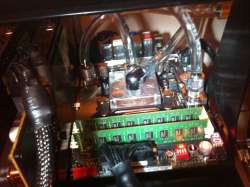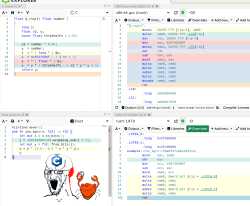Quoted By:
(Continued from >>54807160)
This is a support thread for Meriken's Tripcode Engine.
3.2.11 (June 3, 2016)
Add Pascal (GTX 1070/1080) support. Add AVX/AVX2 support for POSIX systems. Improve build script.
"Meriken's Tripcode Engine" is a cross-platform application
designed to generate custom/vanity tripcodes at maximum speed.
It is arguably the fastest and most powerful program of its kind.
(This program actually runs faster than the original mty or
MTY_CL on the same hardware!) It makes effective use of
available computing power of CPUs and GPUs, and the user
can specify flexible regex patterns for tripcodes. It features highly
optimized, extensively parallelized implementations of bitslice
DES and SHA-1 for OpenCL, AMD GCN, NVIDIA CUDA,
and Intel SSE2/AVX/AVX2.
"Meriken's Tripcode Engine" is free software, licensed
under GPLv3 and available for free download at the following link:
https://github.com/meriken/merikens-tripcode-engine-v3
This is a support thread for Meriken's Tripcode Engine.
3.2.11 (June 3, 2016)
Add Pascal (GTX 1070/1080) support. Add AVX/AVX2 support for POSIX systems. Improve build script.
"Meriken's Tripcode Engine" is a cross-platform application
designed to generate custom/vanity tripcodes at maximum speed.
It is arguably the fastest and most powerful program of its kind.
(This program actually runs faster than the original mty or
MTY_CL on the same hardware!) It makes effective use of
available computing power of CPUs and GPUs, and the user
can specify flexible regex patterns for tripcodes. It features highly
optimized, extensively parallelized implementations of bitslice
DES and SHA-1 for OpenCL, AMD GCN, NVIDIA CUDA,
and Intel SSE2/AVX/AVX2.
"Meriken's Tripcode Engine" is free software, licensed
under GPLv3 and available for free download at the following link:
https://github.com/meriken/merikens-tripcode-engine-v3










